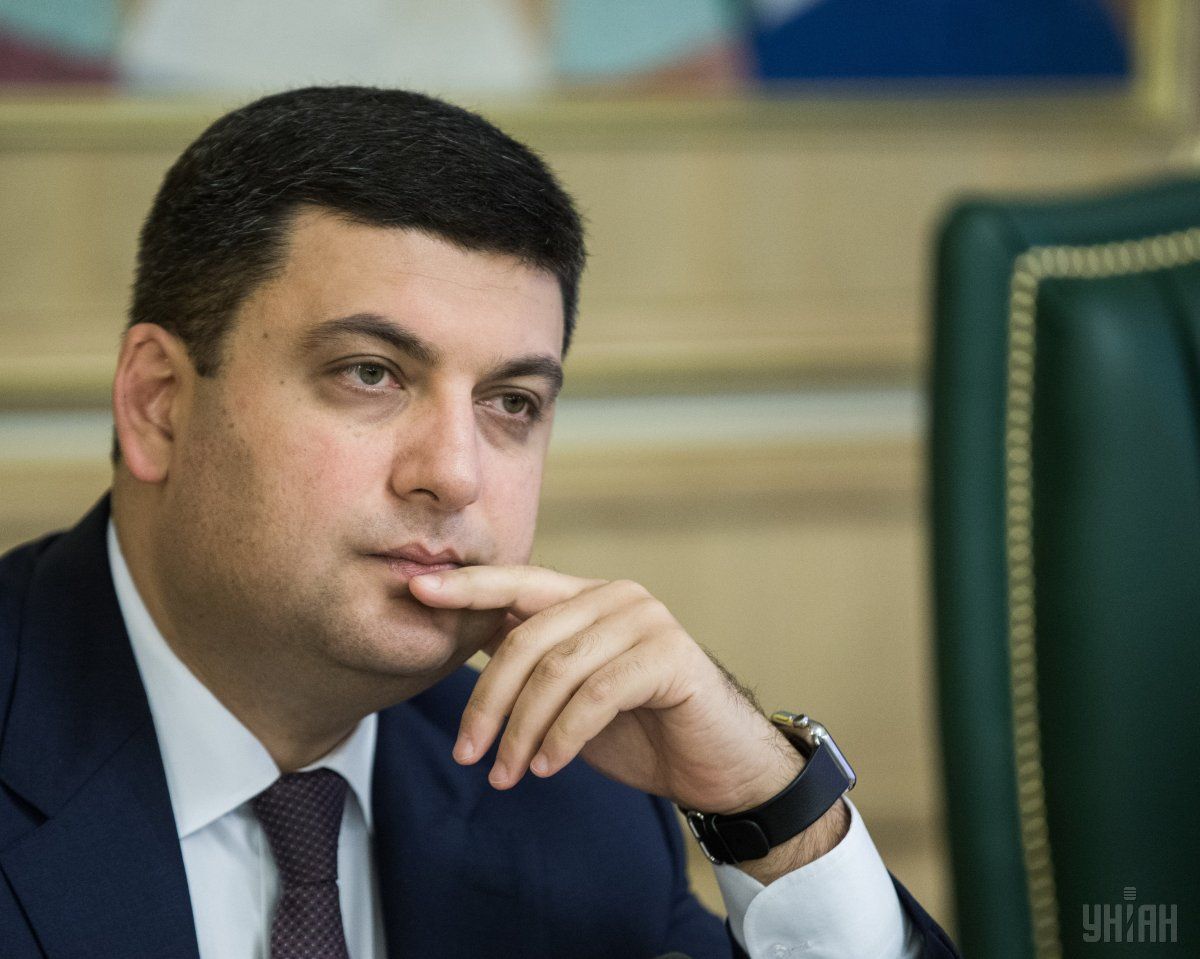
Volodymyr Groysman: "I let go of control over the situation just for two hours as I lay on the operating table and then, as I came out of anesthesia, I learned that the OPP was stopped"
In an exclusive interview with UNIAN, Prime Minister of Ukraine Volodymyr Groysman told UNIAN, how customs officers across the country intentionally destroyed their scanner equipment, called the number of state-owned companies that serve to fatten the pockets of corrupt officials, predicted when the Ukrainians should expect significant growth of the national economy; and explained his position on the moratorium on farmland sales.
You have called and still call decentralization one of your main achievements. In your opinion, how effective are local authorities when using this leverage the reform has given them?
Generally, this is only the beginning of decentralization. In 2014, when I came to the first government of Arseniy Yatsenyuk, I came as Minister for Regional Development, and my main objective at the post was to launch this reform. We quickly took to the approval of the concept, which was worked out together with the expert community, local councils, and associations, and we began to implement it. Then I went to work to the parliament.
At the time when I was a speaker, the parliament managed to pass the first budget law, which was based on the positions of fiscal decentralization. In fact, this is how we launched both the processes of a voluntary unification of local communities, and financial decentralization, and delegation of power to local authorities.
Central government has never done what we’ve done... Neither in 2005, nor in 2006, nor in 2007 ... nor in 2011, nor in 2012 were there any decentralization processes happening in Ukraine. On the contrary, there was usurpation: the central government would take over too many powers, suppressing local government.
As for me, Ukraine is now witnessing the second historic step for local government. The first one was back in 1996 when a law on local government was passed. Here we should pay tribute to then-President Leonid Kuchma. Despite the fact that, to some extent, powers were taken from him, as there was a presidential form of government back then, and could choose to just not do it, he began the development of local government. The second stage started in 2014. This issue was pushed forward by the Yatsenyuk government and then, when President Poroshenko came to power, we were able to consolidate our efforts – there was full support of the prime minister, president and parliament – and in my opinion, we made a historic step.
You have just returned from the regions. Can you name any successful local projects on which local communities are spending their money?
You can see such projects and programs across the country. Now there is much more money in the regions, meaning that local authorities are able to do many things. If you now see in any city, area, or region a new school, a new kindergarten, a new road, a new pavement - it is all due to decentralization.
Alright, but anyway, it often seems that the local authorities do not really understand how it would be best to use their new, including financial, resources. For example, some good thing is being done – a new road is being built. But it is built without a strategy and understanding - from nowhere to nowhere. That is, the money is spent on the road, which no one can use to reach from point A to point B, because the community actually needs a road to point C, but the authorities have not thought about it...
You are absolutely right. Sometimes we see certain signs of institutional weakness, when there is no strategic, systemic vision of what we are doing and why.
But I want to remind you that a variety of training programs are operating in Ukraine now, programs of institutional development, including for local governments, which enhance professionalism of our colleagues in the regions. For example, a recently launched U-LEAD program [University Leadership Education and Development - a program for empowerment, accountability and development at the local level, which is jointly funded by the European Union and member states, namely Denmark, Germany, Poland, and Sweden, to support the Ukrainian government in the implementation of the important decentralization reform in Ukraine, with a total budget of EUR]. Besides, Ukraine has a large number of grant programs. That is, there are numerous tools that allow today to improve the institutional capacity.
Decentralization is a process. The same as when the housewife learns to cook. Indeed, when she does it for the first time, perhaps, not all goes well. But when she pursues training, in two to three weeks, in a month, or in six months, the situation will be changing. Same way with decentralization. We have started the process. Now there are only the first results.
I recall that when we started, I was being criticized from all directions. They would say that we were destroying local government, towns and villages, that we did everything wrong. But then they started moving away from this rhetoric, as in three-five months into the [fiscal decentralization] system launch, first results started to be seen. Clearly, there might be some mistakes.
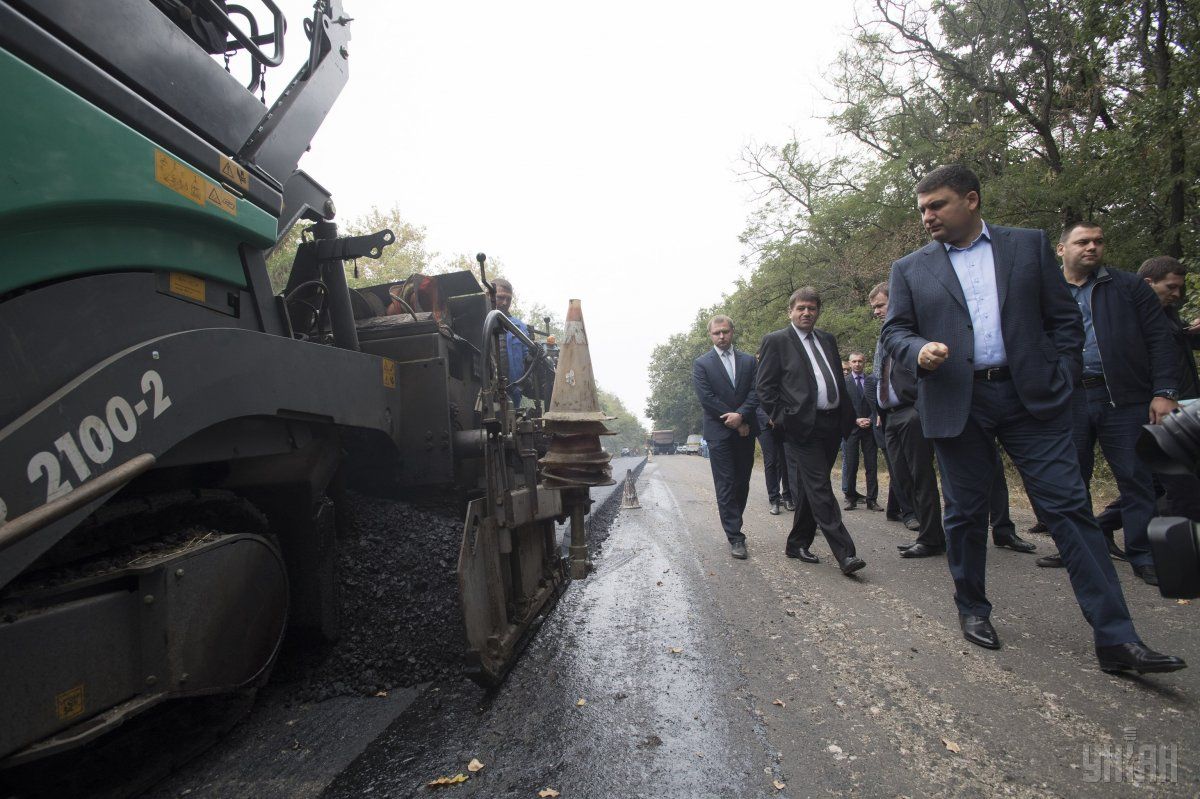
But still, what is missing for successful implementation of various projects on the ground? What determines this success? Is it about the efforts of the community or the amount of money that has been accumulated?
First of all, it’s about leadership. Also, it’s about transparency and systemic vision.
The wording of your question is right: is there an understanding of what we are creating? It’s similar at the state level. When I asked if there was an understanding, what roads we had to build over the next five-seven-ten years and why, I did not hear an answer. This means that there was no strategic vision. And now we must do everything to ensure that the strategic vision is out there.
When we build a road, we have to understand that it must be laid from point A to point B, it must emphasize our logistics capabilities, connect trade routes, which is very important - sea, railway, border, south, north, and so on... We are currently working on this strategy.
If we are talking about roads, do you have any complaints regarding the implementation of the strategy of road development? What gaps do you see? Is there an understanding of the strategy in the regions?
I see that they listen to us in the regions. I see that they are already beginning to listen carefully. Because when I said in May that we would start laying roads, start their reconstruction and repair, they were looking rather skeptically at me...
... Because they’ve already heard the same thing from many prime ministers...
But now, you see, there is a different approach. This is a large-scale infrastructure project, and it's very, very important in terms of economic development. The material, labor force - all of this is local, coming from the regions. And this is what the development of the national economic potential is about.
By and large, the Government which I head has two main objectives. First is to ensure economic stability and sustainable economic growth. Second – to reinvest the results of this growth in quality of life. There is no other option. What were they doing before? They would just buy people’s commitment.
Some would give out a thousand, some would come up with something else. Indeed, people are struggling, and they are happy with that thousand hryvnias and react positively, but then they become victims of fraud. That’s because many other unpleasant things are covered up with that thousand.
Therefore, our task is not some short-term one-off project. It is about growth, jobs, national product, and reinvestment.
And when will we see all of this?
My answer is that in three to five years, Ukraine will be able to ensure a high-quality economic growth. We see a 3% growth for the next year. But this is not enough, we must double it. And we do have all grounds to double it...
I believe that we are seeing a clear logic of action emerging in many areas. In fact, we understand where to move with the healthcare system. There is an understanding on education - where we are and what steps need to be taken next. We also understand mechanisms of economic incentives needed to be introduced to start reviving the national economy; what to do in the industry, which is currently unbalanced. In the management system – we are implementing a reform of the civil service, increasing the range of functions of local government through decentralization. Also, we need to get rid of such corruption factor as non-strategic state-owned enterprises...

You said that we need to double economic growth. At what expense? For example, strategic advisors and international lenders of Ukraine have repeatedly mentioned that Ukraine should launch the agricultural market because the country is missing an opportunity to get adequate investment in agriculture, including because there is no land market. At the same time, the Rada once again automatically extended the moratorium on farmland sales for another year...
Politicians know for sure that this moratorium can be discontinued, and it will continue working anyway. We understand that there is no land market in Ukraine. But this topic is subject to speculation; it's a very populist issue. Now they wanted to play a card of a clear defender of people's wealth. Removing all bans on the sales of land will mean a single thing (God forbid this could actually be done) – 10 families will be able to buy up all the land across the country.
Therefore we have to set up totally transparent rules, to which landowners have to agree in particular. I wish for this [transparent land market] to let our landowners become richer, not poorer.
There should be a number of safeguards that should be applied in the process. And to this end, we have a simple model. I am planning to involve members of parliament, government, experts, representatives of the landowners, to create a working group. In two to three months, we will be able to work out proposals on possible ways to deal with this issue, to see where we have a consensus and where we don’t... This issue should not see any back-door games. I will bring it up to transparency. Then we will understand exactly the rules.
But the commitment to develop and table in parliament the bill on the establishment of land market was imposed on the Cabinet by the previous moratorium. Why has this document not been prepared in advance and why are we talking about a relevant working group only now?
The government pledged to introduce a land market as early as 2008 or 2009. This is further evidence of the falsehood of what was done and not done on this issue. Even now, on the one hand, politicians talk about the need to open the land market, and on the other hand, they scream that the moratorium should be prolonged.
My task is to create a transparent debate on this issue.
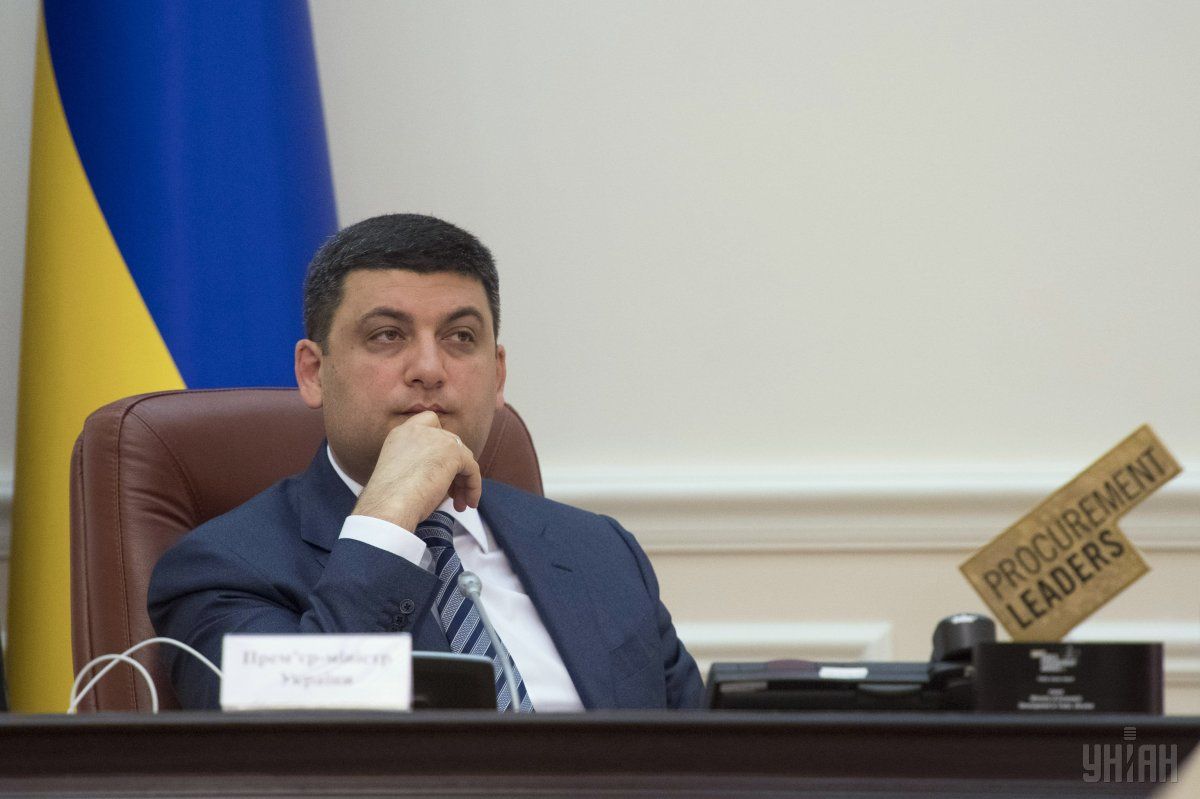
Returning to the advice and recommendations of Ukraine’s strategic advisers, who have repeatedly called to cut social spending. But instead of creating a single electronic register of recipients of social benefits and clearly understanding how many people receive payments and how big those payments are, the Ministry of Social Policy jokes that even some MPs may apply for subsidies...
We really do need to have a clear understanding of how many people need government support. Regarding subsidies, there is a program called "Subsidy Calculator". You can enter the data on your income and expenses and see what size of social assistance you are entitled to get. The subsidy is calculated on income, not status.
Now, we have an adequate system. But we else do we want to do? We want the people who saved resources to be able by the end of the heating season to get their savings in monetary equivalent (we want to develop such a mechanism). It would be a good promotion of energy saving.
But those who had been saving last year, received nothing...
The previous year, there was no such system.
See, my objective is to achieve monetization of savings. But I am not handing out promises in advance. I am saying that we are now working on this issue, making everything possible to implement this mechanism.
Our social security system must see a new approach. I emphasize that the Ministry of Social Policy is working on it, including on verification.
Besides, for example, let’s take a system of employment. For years, for decades, it has been developed to stimulate unemployment. The task of our government is to change the system, to make it stimulate new jobs.
Or let's take the pension fund...
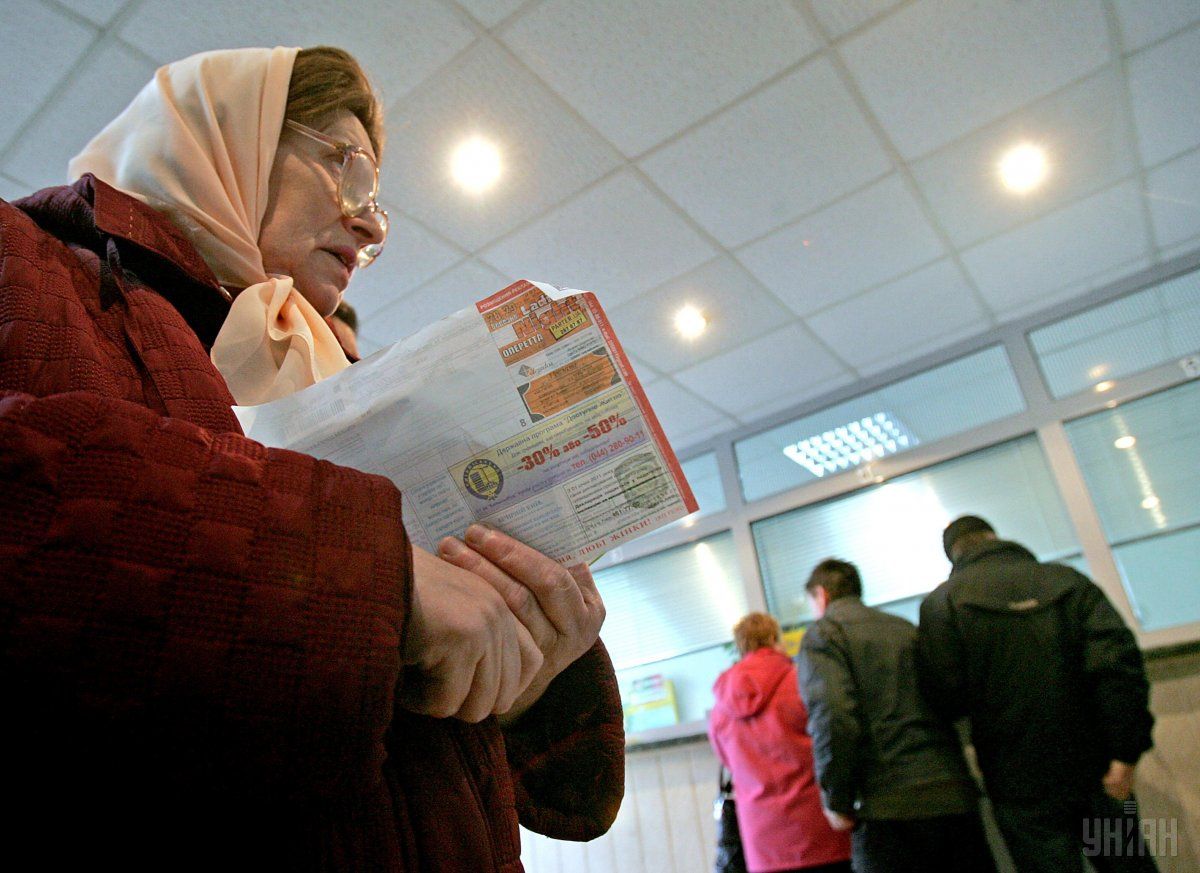
It’s a hole ...
It’s an almost UAH 150 billion hole. This is a huge challenge to the entire state. For those already retired, this is a de facto challenge, because one-third of our people get by with a minimum pension. This is unacceptable. Such a system must be rebuilt.
There are other problems that have not been solved for decades. There are 2.5 million citizens in Ukraine who do not make contributions to the pension fund. But when they retire, they all go for their pensions like for the holy water. Is this fair to the tens of millions of others? No, it’s not. A solution must also be found here...
Actually, we all need to think, what Ukraine we will give our children. Sometimes I look at what happened over the last decade, and it seems that all politicians professed the same principle: “Apres mois le deluge”. It seems that the executive branch performed as if they were all part-time workers. That is why there was no strategic vision, a systemic vision of the country’s development, no understanding of Ukraine's place on the map of Europe and the world.
Look at the potential of our country! A population of 45 million, geographical location in the center of Europe, the sea, natural resources, human resources, the people... We have everything to be a serious, economically strong country. But why is this not happening? That’s because of corruption, because the oligarchs stole something somewhere, some monopoly emerged and so on. Customs - corruption, healthcare - corruption ... I can’t understand this.
It all sounds too pessimistic...
Despite all this, the business works, pays taxes, creates the national product, making the country economically stronger. But there comes up some ignorant tax inspector (I am talking about the system in general, not just the tax service, but any inspection as such) who starts bugging the one who is actually working. For such things, they should be hit on their hands with a stick. It is unacceptable. After all, this is how we destroy Ukrainian economy, the Ukrainian potential with our own hands.
Therefore, our task today is to create a healthy environment, launch the process of rapid investment, revive the banking sector so that it begins lending to businesses in normal conditions. We are now creating the Investment Support Office - this will be a very good tool, and you will see the result of its work. There is also the Committee for Industrial Revival (we will deal with real affairs of real industrial sector and solve their problems in order for them to develop, instead of going for stagnation); the Export Agency (we will have to go out on various markets with Ukrainian products).
Thus, because of Russia we have hurt our logistical capabilities, but I met with representatives from Central Asia and they say they need Ukraine’s agrarian, machine-building products.
Do they need finished product or raw materials as usual?
Both the finished product and raw materials. But I understand what you mean. We need to move away from the commodity type. We need to sell flour, not grain. We need to sell products made of flour than just flour. Can we do it? We’ve done so forever. It’s always been like that. But then the oligarchic type of economy set its own rules: harvest grain, sold it quickly, and make money fast...
The raw economy is simpler...
There are laws of nature and economic laws. Simpler does not mean competitive. This shortsightedness is malignant for the country.
Back to honest business that keeps working against all odds. Has there become fewer inspectors that stifle businesses? What do you think is the situation like at customs, the State Fiscal Service (SFS)?
Dozens of customs officials and tax inspectors have been dismissed. But this is not enough. I believe that the process moved from the dead spot, and I want to launch a massive reset of the internal security of the State Fiscal Service. I want this internal security to be independent of the SFS. That’s because corrupt officials in the SFS must be handcuffed. Same goes for customs officers.
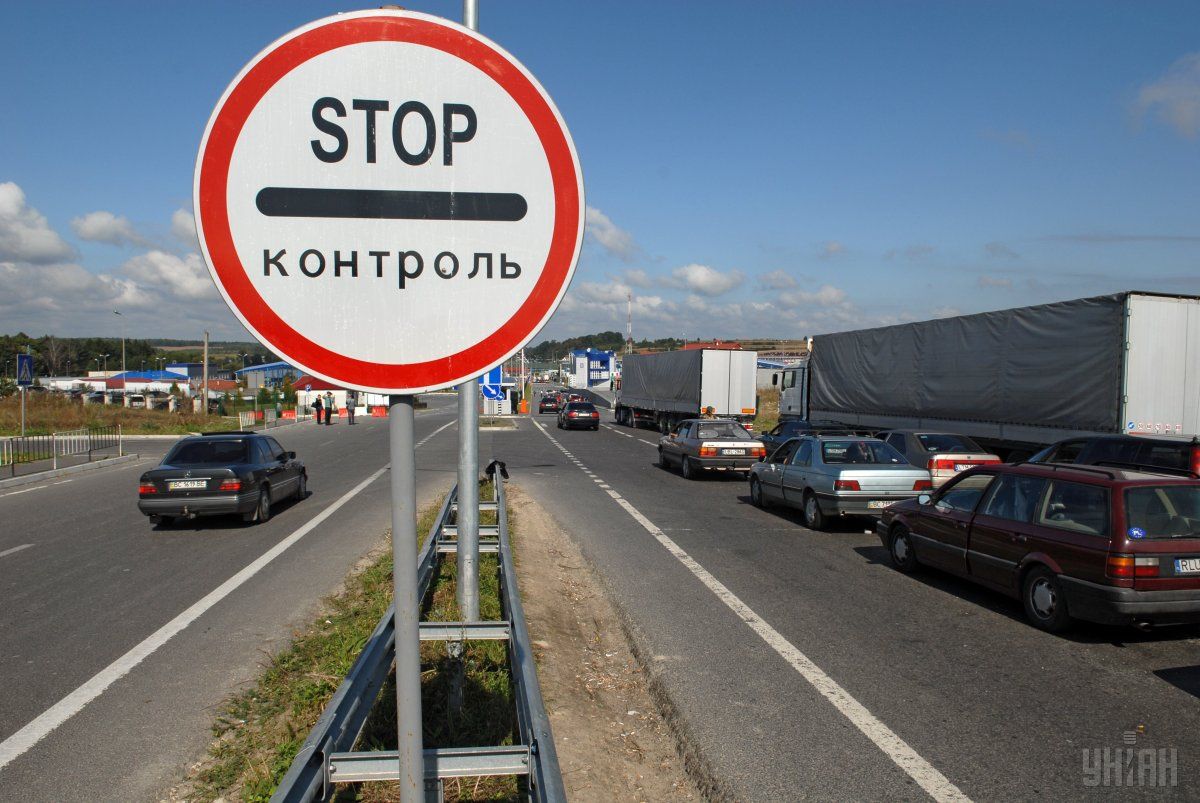
We have now launched the "customs hundred", set up a "single window", introduced a completely different tariff calculation for customs clearance. Now we already see the result. In May-July, those who were involved in shady schemes were sitting there and waiting whether Groysman would let go of the issue or not. Then they realized that he wouldn’t. It is not good for them not to transport any goods at all: it is better to transport it in a transparent way than to delay shipments further. So in August we received UAH 21,300,000,000 instead of the planned UAH 19 billion. In September, we also exceeded our plan. It all brings results.
Today smugglers and people living off of shady schemes have no easy life they used to live before. And now it is important to strengthen this work and not to stop.
You know, we have no single scanner [an x-ray device allowing to inspect goods without opening parcels, vehicles etc.) at customs. All of them are mechanically damaged. That is, customs officers damaged them so that no one could see what goods were transported in containers, cars ... Therefore, our task today is to technically "rearm" and modernize them. We will do it together with our American partners. I think we will be able to restore order within a year.
But there are two parts to this work. First, there are local anti-crisis things that can be daelt with by administrative orders. Secondly, there are other problems - systemic, strategic changes.
As for systemic changes. Soon we will have a tax reform. Will it give some relief for business? What will its essence be?
It’s about tax administration. We put forward proposals to simplify administration. Ahead of that, the Finance Ministry spent a few months doing serious work with businesses, associations, with everyone involved, with MPs ... The government considered the proposals and we have now sent them to the Reform Council.
Our task is to make a completely transparent system of revenues, costs, and simplified administration. We don’t want the businesses to have ambiguous positions. We want to create conditions for the businesses to feel better. Therefore, this draft tax reform is pro-business, not pro-authority.
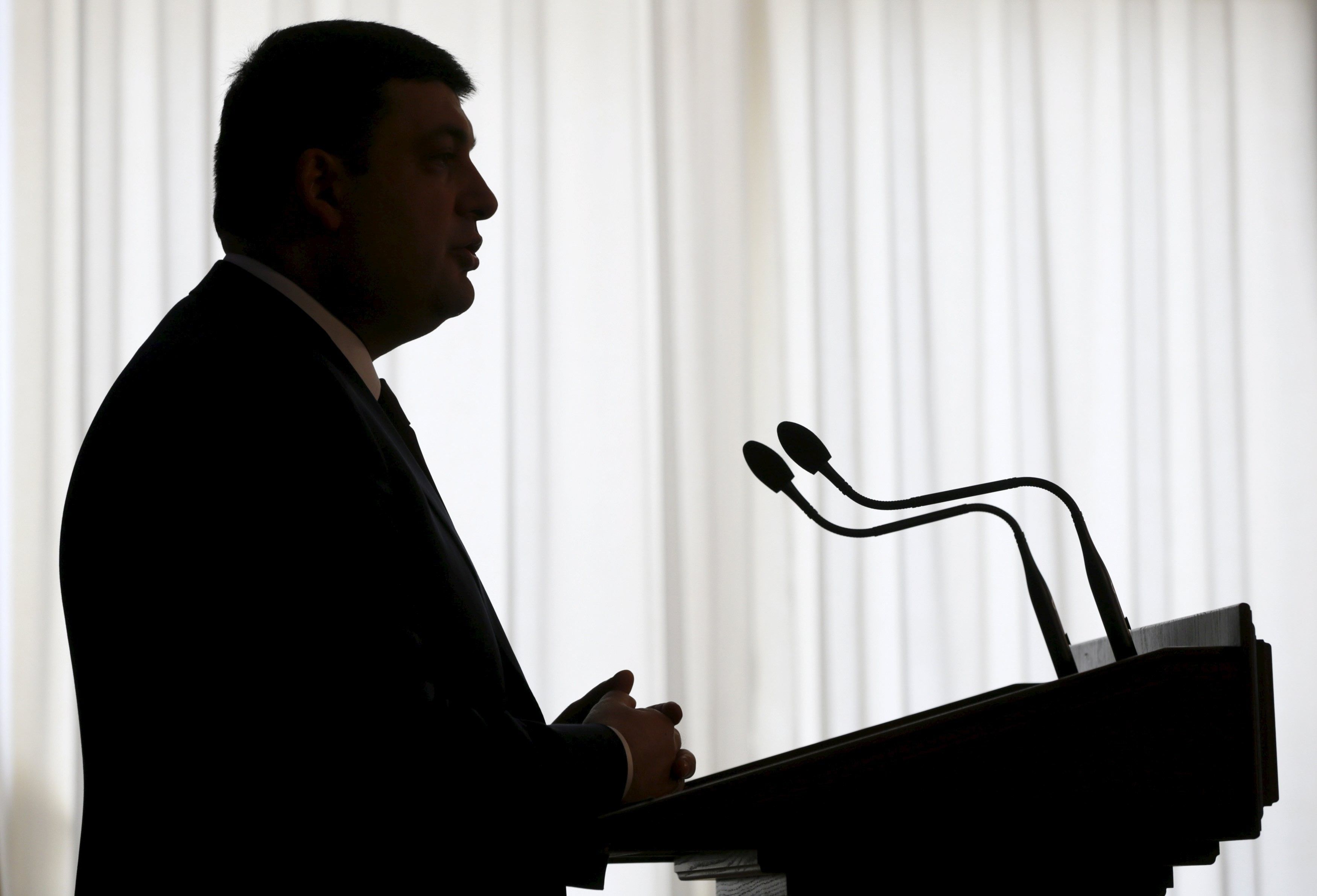
For example, anti-corruption changes on maintaining the registers – taking them away from the SFS to the Ministry of Finance. This is a de-concentrated system where some officials appoint payments, while others confirm the motion. Such a system does not give anyone an opportunity to concentrate all power and then abuse it.
In matters of importance to business, do you rely on the opinions of ministers or do you personally meet with entrepreneurs?
Every two or three months, I personally meet with the businesses. And we discuss problematic issues. It’s like hundreds of people from different cities, different sectors and companies, plus there are representatives of all associations, plus the business ombudsperson... We discuss VAT, customs, and plenty of other things...
In fact, as the outcome of these meetings, the power to initiate criminal cases against businesses was abolished with an order. Formerly, it was used as an element of pressure: they would come, draw some millions in losses "from the ceiling", and immediately open a criminal case ... I have said many times and I repeat it: I will publicly destroy all “law enforcers” that hinder business, who defame these agencies.
Recently I saw the appeal of an Austrian business about real torture-type control actions by regulatory agencies. Now the situation is being resolved. Head of the SBU played a positive role, and the SFS is also starting to play the right role... We must unite people around the idea of supporting the business.
On the other hand, reducing the single social contribution has not led to large-scale de-shadowing, deregulation has not become complex, investment attractiveness remains low, we have declared privatization loudly, and once again, we lay in the draft budget an optimistic figure from the sale of SOEs, but the situation with the Odesa Portside Chesurgermical Plant (OPP) demonstrates that reaching these indicators can be a very problematic issue...
Just when I had a surgery done on my back, that day the OPP was stopped. Before that time, I kept it alive for several months. I was making it impossible to stop it. But once I let go of control over the situation just for two hours, because I was on the operating table, and then, as I came out of anesthesia, I learned that the OPP was stopped. For me it was a very bad sign. I think it [the OPP stoppage] was an erroneous decision. We resumed its work, the OPP is operational.
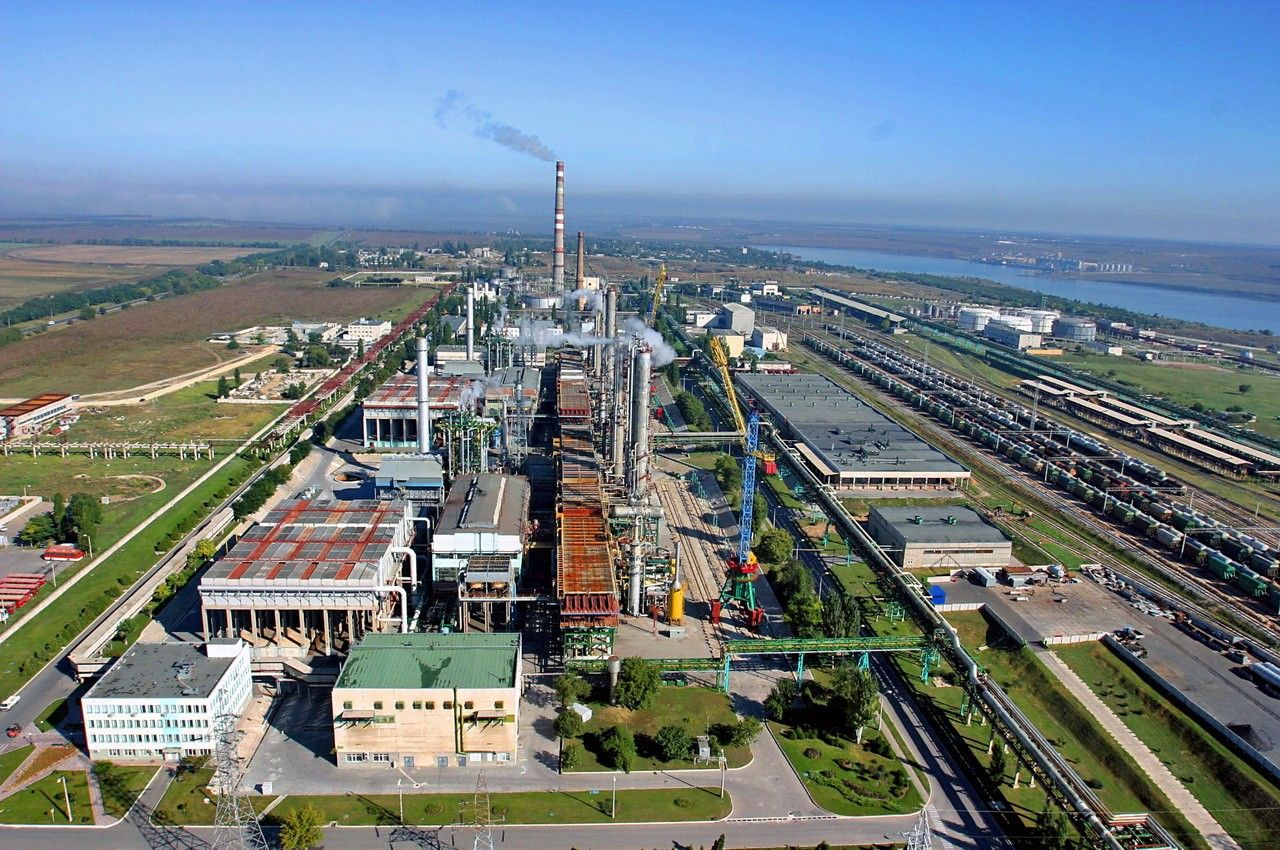
What happened to the price of the company? The drop from almost $500 million to $150 million - is this normal?
Its price of $530 million was approved by the Ukrainian expert. I used to call up meetings, invited international experts, who said that such a price was too high. But the Ukrainian expert said, "What are you saying? We have calculated everything. This is the price which would be totally supported in the market."
How can you check, if it’s the right price or not? The market has to say its word. We put the company for a public sale and saw no bids. This means that the market has no demand for this price. This means that now the State Property Fund reviews the price, reducing the starting price.
By the way, this is often an issue for speculation. The starting price is not the sale price. The plant will be sold for as much as it costs today. And if it is not purchased, then - I can already see it now – there is an attempt to bankrupt it, to get it for free later. Therefore, our task is to ensure transparent conditions of public privatization and receiving money for the OPP at its market value. This means that we have to create a wide range of participants. And it is important to know first, who exactly is behind companies that intend to bid. The second thing is that there must be at least two participants, one of whom must be a foreign representative, so that the privatization process became extensive to the max. And then we will see how it will all go. I think this process is natural and I don’t dramatize the situation.
Moreover, today we found more than 3,000 companies of which we knew nothing. By now, we have 3,800 companies that are of no interest and strategic importance to the state. Whom do they serve? In some of them, the deputies was appointed, in some - the ministers, there are relatives, family, friends... Who profits off all this? There is a caste of people using state property for their own purposes. And this includes privatization. This is the investment.
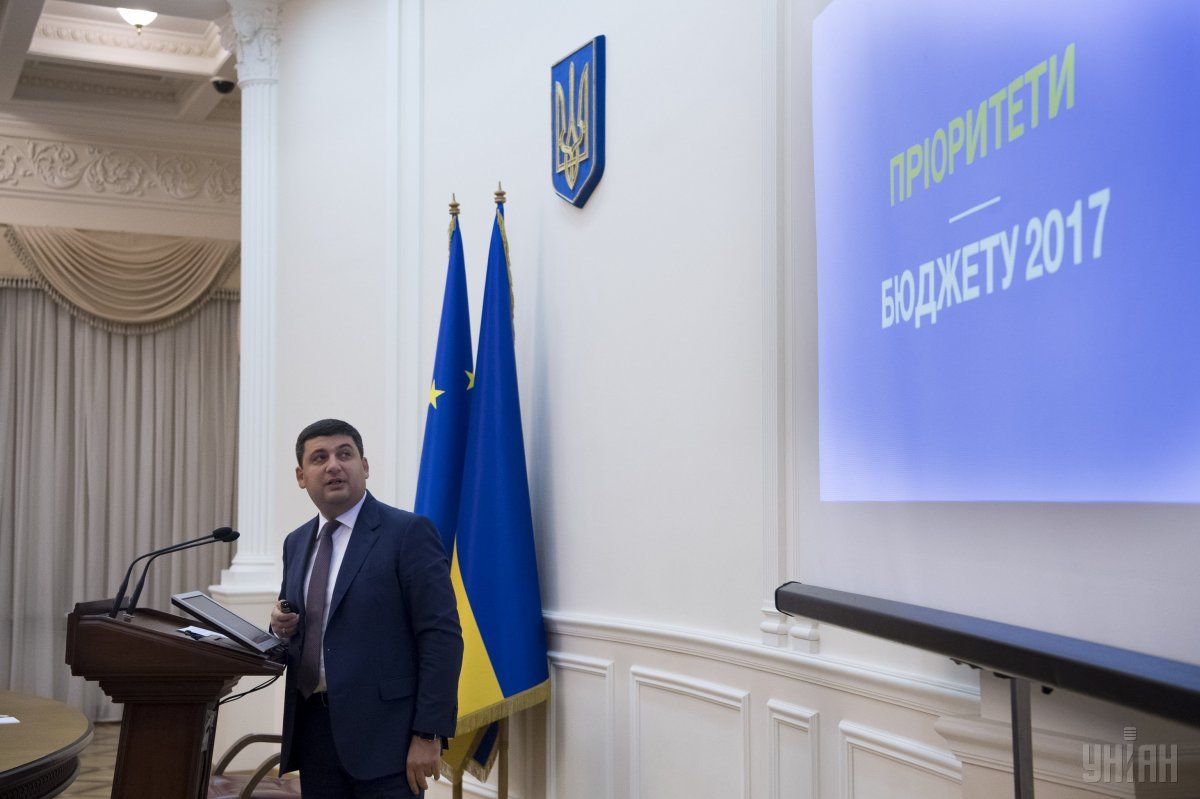
That is, you believe that this optimistic figure in the state budget that you expect to get from privatization can actually be reached, right?
The market. Only the market can determine if the figures from the sales of state property are realistic.
How is your position supported by the head of the State Property Fund? The fulfillment of a large share of the budget depends on him…
This is his basic function. It is basically to effectively manage state property, create competitive procedures and conduct privatization if the State decides so. The task of the Fund is to fulfill this task.
Today the State Property Fund has not proved its effectiveness. When will they prove it? When they carry out privatization honestly, openly and effectively. When we see a rise in revenues from state property management. This is a colossal amount of money! This money must be watched carefully: who rents what and for how much… There are many corruption-sensitive things on this path. And this is a challenge for the State Property Fund.
Once again I want to say that I am free in my views and actions. My ambition is that I want Ukraine to be accomplished as a rich European country. I think this is a normal ambition for any normal Ukrainian citizen.
You said that you were free and independent in your views and actions. Do you see yourself the one in charge of the State as we are parliamentary presidential republic, where a prime minister is nominally the first person?
You know, I do not perceive it this way - the first, second, or third person... I believe that anyone who sees himself as the first one, or second, third, or fourth, is probably a little sick.
We have a system of governance. There is a Head of State -- the President. There is Parliament, which in a parliamentary-presidential republic plays a key role in the formation of the executive branch, which is controlled by Parliament. There is Chairman of the Verkhovna Rada - the official who bears great responsibility for the legislative process. There is Heads of Government who heads the executive branch. So, as a prime minister in a parliamentary-presidential republic, I can say that it is a difficult and very demanding job.
Do you have people with the same views as yours in your team, and how many of those are there in various branches of power?
I think that based on my ideology, based on the result I want to achieve, there are many people in our society that share my views. In the power branches – it varies. There are those who want change, want it sincerely. And there are those who say they want change but do the opposite, putting sticks in wheels, playing under-the-table games, creating various obstacles, blocking the process...
But I am no alarmist, first of all. Secondly, I have my own position. I have what I’ve mentioned - a great desire to make a change. I think that there will be more people that share my views in the various branches of power with every year.
And what are prospects you see for yourself after you quit premiership?
A successful Ukraine. I have no ambitions for power. I believe that those who are hostage to being in power are ill. Power is just a tool.
When in 2006 people supported me and elected me their mayor, I was 28. I got 36% of the votes. For a 28-year-old guy, a city with an almost 400,000 population was a challenge. However, when I was re-elected for my second term, 77% of Vinnytsia residents supported me. It all scales: a city with a 400,000 population and a country with a 45 million population see almost the same processes. Of course, being in power is difficult, it’s not easy. But when you have this idea burning inside you, when you attract people and get the result, you're changing the world.
The most important thing is to use any position as a tool for a positive change.
I wish that when the time comes to leave office, I don’t feel shame for any of my days on my job.

